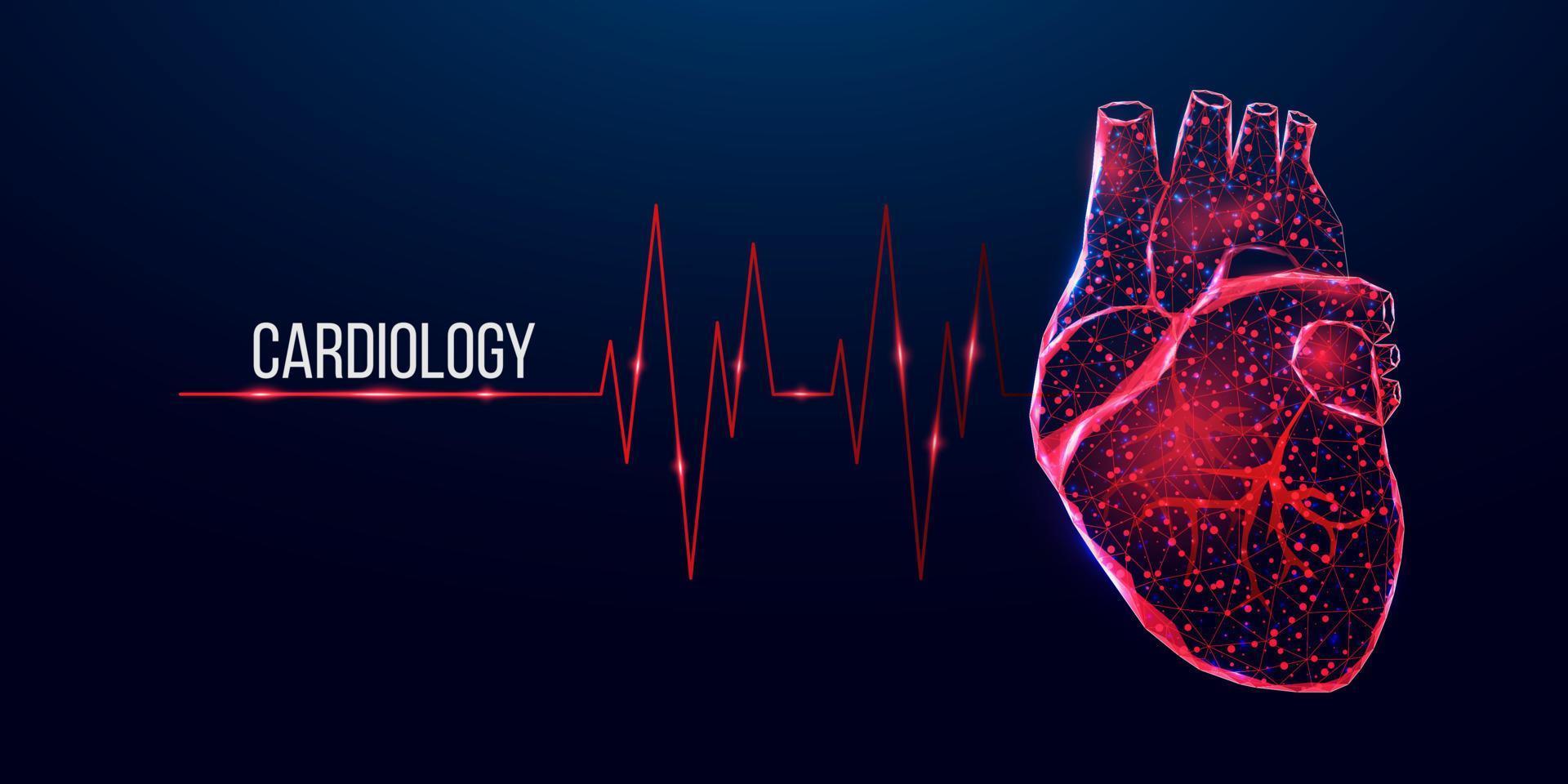The Role of Cardiology in Preventative Health and Wellness Solutions
Cardiology is progressively acknowledged for its critical function in preventative health and health solutions. By highlighting aggressive methods, cardiologists aim to decrease the occurrence of heart diseases. This method encompasses threat analyses, way of living modifications, and regular testings. Through these initiatives, clients are encouraged to take control of their heart health and wellness. Nonetheless, the integration of innovation and partnership with various other doctor increases important questions about the future of preventative care. What might this advancement entail?

Recognizing Preventative Cardiology
Understanding preventative cardiology entails recognizing its vital role in decreasing cardio illness risk via aggressive measures. This branch of medication stresses the significance of way of life alterations, including exercise, tension, and diet regimen management, to stop heart-related issues prior to they occur. It advocates for regular health screenings and education to encourage individuals in making informed health and wellness choices.Preventative cardiology likewise encompasses the identification of threat factors such as hypertension, diabetic issues, and high cholesterol, advising individuals to adopt healthier habits - Cardiologist near me. By concentrating on avoidance instead of response, this approach not just improves specific wellness results but additionally alleviates the general burden on medical care systems. Furthermore, it advertises partnership amongst health care companies, patients, and neighborhoods, promoting an all natural approach to heart wellness. Inevitably, understanding preventative cardiology influences a change in the direction of a proactive way of thinking, prioritizing long-lasting health and wellness and well-being
Threat Analysis and Management
Threat assessment is crucial in identifying cardio threats that can result in major wellness problems. Efficient administration of these dangers commonly involves executing way of living modification methods, such as enhanced diet plan and increased exercise. By comprehending and resolving these variables, people can significantly reduce their chance of developing heart diseases.
Recognizing Cardiovascular Threats
Although many aspects add to cardiovascular health, determining cardio risks is essential for reliable prevention and monitoring. Cardiovascular risk analysis entails reviewing different elements, including household history, way of living, gender, and age routines such as cigarette smoking and physical lack of exercise. Additionally, wellness problems like hypertension, diabetes, and high cholesterol greatly affect a person's threat profile. Healthcare experts utilize devices such as danger calculators and biomarker tests to evaluate these dangers and stratify people appropriately. Early identification enables targeted treatments, leading people toward suitable monitoring techniques. By acknowledging these risks, cardiologists can team up with people to produce tailored strategies that emphasize surveillance and aggressive care, eventually decreasing the probability of adverse cardio events.
Lifestyle Adjustment Techniques
Efficient way of living alteration methods play a vital function in managing cardio health and wellness and minimizing connected dangers. These strategies encompass dietary modifications, enhanced physical activity, and cigarette smoking cessation. A heart-healthy diet plan rich in fruits, veggies, whole grains, and lean proteins can considerably lower cholesterol degrees and blood stress. Regular exercise, such as cardiovascular workouts, enhances the heart and boosts circulation. In addition, quitting smoking lowers the risk of heart problem and enhances overall wellness. Healthcare specialists commonly use threat analysis devices to tailor these alterations to individual demands effectively. By incorporating lifestyle become routine care, cardiologists can equip people to organize their heart health, ultimately bring about boosted outcomes and minimized medical care expenses.
Lifestyle Adjustments for Heart Health
To maintain optimal heart wellness, people should embrace a variety of lifestyle modifications that greatly reduce the chance of heart diseases. A well balanced diet regimen rich in fruits, veggies, whole grains, and lean healthy proteins is vital. Minimizing hydrogenated fats, trans fats, and salt intake can substantially reduce cholesterol degrees and high blood pressure. Normal physical activity, such as brisk walking or biking for at the very least 150 mins per week, also plays a substantial role in strengthening the heart and boosting circulation.Additionally, managing stress via strategies like mindfulness and reflection can have a positive effect on heart wellness. Preventing tobacco products and limiting alcohol consumption additionally add to a healthier cardiovascular system. Preserving a healthy and balanced weight is vital, as weight problems is a major threat element for heart problem. By incorporating these way of life modifications, people can cultivate not only their heart health however likewise their overall health, leading to a more dynamic and energetic life.
The Importance of Regular Testings
Along with way of living adjustments, routine testings play an important function in keeping heart health and wellness and preventing heart diseases. These assessments are substantial for determining threat aspects such as high blood pressure, high cholesterol, and diabetes mellitus, which can cause severe complications if left unchecked. Cardiologists advise regular assessments to keep an eye on heart feature and detect abnormalities early, enabling for prompt intervention.Screenings, which might consist of blood echocardiograms, tests, and electrocardiograms, offer vital data for personalized therapy plans. This positive method empowers individuals to make educated choices concerning their health, enhancing general wellness. Additionally, normal examinations promote a stronger doctor-patient relationship, motivating open dialogue regarding heart health issues.
Integrating Technology in Preventive Care
Accepting modern technology has actually changed preventative care in cardiology, providing cutting-edge tools that enhance client surveillance and involvement. Wearable gadgets, such as smartwatches and health and fitness trackers, enable individuals to monitor their heart rate, activity levels, and overall health and wellness metrics in real-time. These gadgets not just supply prompt responses however also assist in data sharing with doctor, enabling timely treatments when necessary.Additionally, telemedicine has arised as a famous function in cardiology, making it possible for remote examinations and follow-ups. This ease of access assures that patients can get treatment without the barriers of traveling and time restrictions. Mobile wellness applications additional assistance preventative steps by using customized understandings and reminders for medicine adherence, way of life modifications, and scheduled screenings.
Individual Education And Learning and Empowerment
Empowerment with education and learning is essential in the domain name of preventative cardiology, as informed clients are a lot more likely to engage in proactive health and wellness habits. By recognizing their cardiovascular wellness, patients can make educated decisions pertaining to lifestyle adjustments and adherence to therapy strategies. Educational campaigns, consisting of workshops, informational handouts, and on the internet sources, offer to boost patient understanding regarding danger aspects such as high blood pressure, cholesterol degrees, and the importance of regular exercise.Moreover, empowering patients promotes a collective technique to health and wellness administration. When clients recognize their problems and the ramifications of their selections, they are more probable to take part in discussions with doctor, leading to customized treatment methods. This partnership next page not only promotes liability yet also boosts inspiration for preserving a heart-healthy way of living (Cardiology). Inevitably, individual education is a cornerstone of preventative cardiology, outfitting people with the tools necessary to take cost of their cardio health and health
Teaming up With Other Medical Care Professionals
Effective client education and learning prepares for collective initiatives amongst medical care experts in the area of preventative cardiology. Cardiologists, main treatment doctors, nutritionists, and psychological health professionals must function in synergy to maximize client outcomes. By sharing methods and insights, these experts can produce extensive care plans that resolve both mental and physical aspects of heart health.Regular interdisciplinary meetings foster interaction, guaranteeing that all staff member are notified concerning patient development and difficulties. This collaboration assists in prompt interventions and modifications to treatment strategies, enhancing the performance of preventative measures.Furthermore, incorporating innovation, such as common digital health documents, improves information access and improves sychronisation efforts. This alternative strategy not website here just improves person adherence to way of life modifications yet also equips people to organize their cardiovascular health and wellness. Inevitably, collaboration among medical care specialists is essential in promoting a positive strategy to heart condition prevention.
Frequently Asked Inquiries
What Is the Distinction Between Cardiology and General Healthcare?
Cardiology specializes in identifying and treating heart-related problems, while basic health care encompasses a more comprehensive variety of clinical solutions addressing numerous wellness problems - Cardiologist near me. Each plays a vital function in maintaining general health and wellness and wellness
Just how Usually Should I See a Cardiologist for Precautionary Care?
The regularity of cardiologist gos to for preventative care varies based upon individual danger elements. Typically, yearly examinations are advised for those with current conditions, while others might need much less constant exams based upon total heart health and wellness.
Can Tension Impact My Heart Health Dramatically?
Tension can considerably affect heart health and wellness by adding to hypertension, swelling, and unhealthy lifestyle selections. Individuals experiencing persistent tension might be at raised danger for cardio issues, requiring reliable stress and anxiety administration approaches for far better heart health.
Are There Specific Heart Disease I Should Be Conscious Of?
People should know conditions like hypertension, coronary artery illness, cardiac arrest, arrhythmias, and valvular cardiovascular disease. Acknowledging these conditions early can bring about better administration and boosted overall heart health and wellness end results.

What Are the Expenses Connected With Preventative Cardiology Services?
The prices related to preventative cardiology solutions can vary considerably. Variables such as area, sort of solution, and insurance policy coverage influence total costs, making it necessary for people to seek thorough info particular to their situations. Through these initiatives, clients are encouraged to take control of their heart health and wellness. It promotes for routine wellness screenings and education to equip individuals in making informed health and wellness choices.Preventative cardiology also incorporates the identification of threat variables such as hypertension, diabetes mellitus, and high cholesterol, advising people to embrace healthier routines. In addition, it promotes cooperation among healthcare clients, carriers, and communities, fostering an alternative technique to heart wellness. Regular physical activity, such as quick walking or cycling for at least 150 minutes per week, additionally plays a considerable role in improving he said and enhancing the heart circulation.Additionally, managing tension with methods like mindfulness and reflection can have a positive effect on heart health. Cardiology specializes in diagnosing and dealing with heart-related conditions, while basic wellness care includes a more comprehensive array of clinical solutions addressing different wellness concerns.